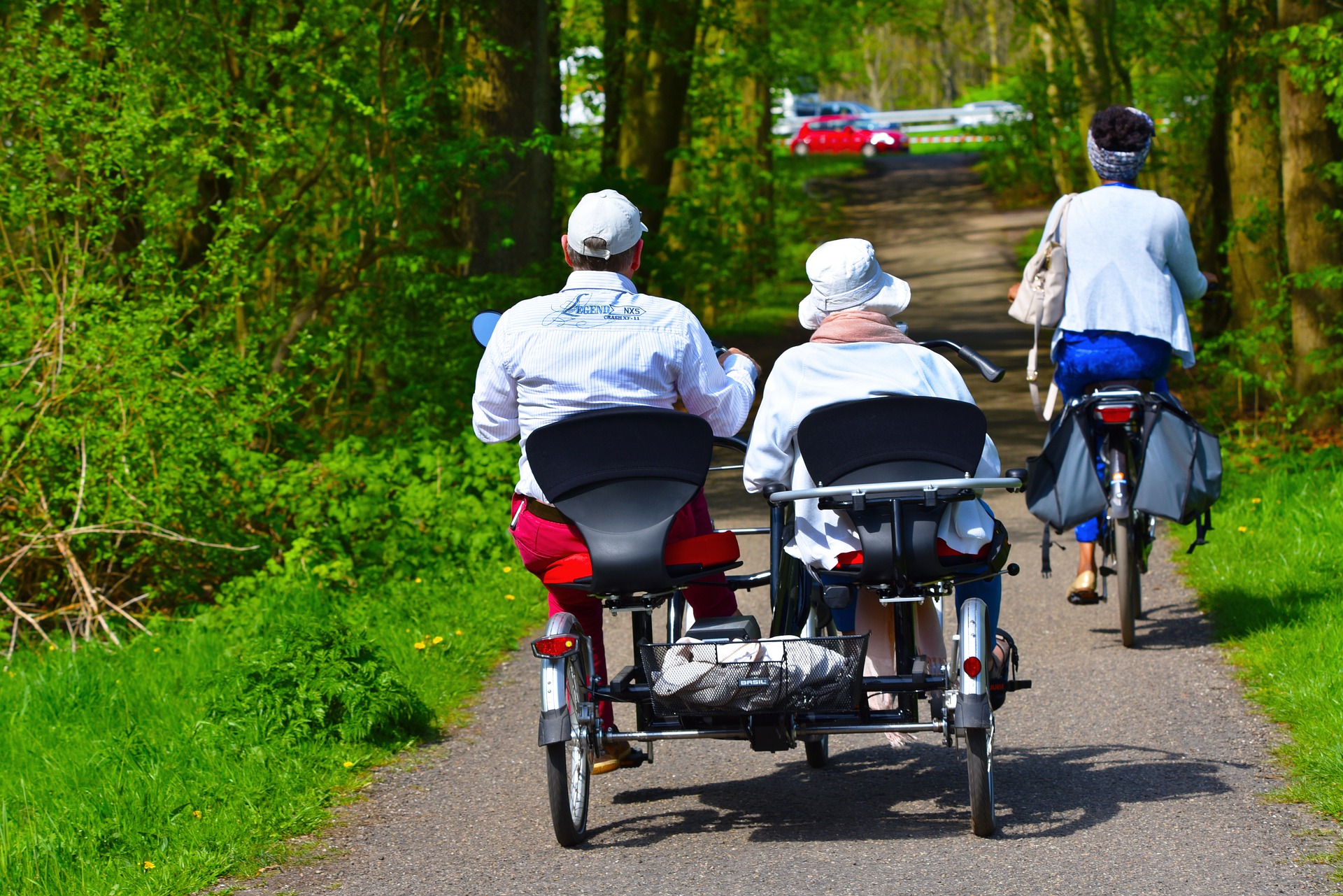1. 노인복지의 기본적 원칙
(1)존엄성,독립성,안정성을 유지하는 것이어야 한다.
(2)선택의 자유를 제공하여야 한다.
(3)충분한 사회참여를 증진하도록 하여야 한다.
(4)노령의 부정적 충격을 감소토록 하여야 한다.
(5)개인적인 활동을 권장해야 한다.
(6)정부가 책임을 인식해야 한다.
(7)모든 노인에게는 동등하게지원한다.
(8)어떤 특수집단에 앞서 전체 국민의 복리를 고려하도록 한다.
(9)변화해 가는 욕구에 보조를 맞추어야 한다.
(10)새로운 지식의 획득, 보급 및 적용이 필요하다.
(11)노인복지의 목표나 목적을 우선 순위에 따라서 발전시켜야 하겠다.
2.노인복지의 대책
1)소득 보장 대책
노인연금이나 공적 부조제도 등을 활용함으로써 소득의 상실을 보장하는 것이 소득 보장 대책이다.
2)일반 복지 대책
취업알선,노인클럽 조성, 노인사회단체 활동 조성, 노인 스포츠 장려 및 보급, 노인복지 센타 설치, 노인휴양관 설치, 노인대학, 노인농원 설치 등이 되어야 하겠다.
3)주거 복지 대책
가사보조원 파견, 생활 필수품의 급부 또는 대여(특수침대, 욕조), 혼자 사는 노인의 안부를 묻는 전화의 설치, 공공 간호원 파견, 노인거택 정비대금의 대부, 음식,영양식 배달서비스, 보건소,병원왕래 교통서비스, 법적 조언등이 있다.
4)시설 복지 대책
노령으로 인하여 독자적으로 생활하기 어렵거나 가정 사정이 특별할 경우에는 시설적 보호를 받을 수밖에 없다. 양로원, 요양원 등
5)보건의료 대책
노인건강 진단, 노인의료비의 무료화, 노인 백내장 수술 지급제도등 이 있다.
6)노인복지센타
노인 복지 센타란 1년 동안 매주 5일간 하루 4시간씩 노인들에게 제공하는 시설로서 공공기관이나 비영리기관 등에 의해서 운영된다. 이 시설은 유급전문직 지도하에셔ㅓ 여러 가지 서비스를 실시한다.
3.노인복지의 발전방향
1)정년제도
정년의 연장이다. 국영기업체나 은행의 은퇴 규정(55-60세) , 기술직 공무원(40세) , 여기에 최소 65-70세 까지 정년을 연장시키는 정책적 발전방향이 간구되어야 하겠다.
2)연금제도
모든 노인들에게 해당될 수 있는 국민복지 연금제도가 실시되어 노후생활의 안정을 보장할 수 있어야 한다.
3)의료 제도
모든 노인들이 의료혜택을 받을 수 있ㄴ느 국민보건 프로그램을 개발 발전시켜야 한다. 노인사회법에 규정된 65세 이상 전 노인의 2년 1회 건강진단과 계속적인 진료 등의 대책이 고려되어야 함
4)주거제도
노인을 위한 임대 아파트, 다세대 주택 사업, 특히 노인을 모시고 살 수 있는 특별한 아파트나 주택의 건설이 국가적인 정책이 되어야 한다.
5)시설 제도
우리의 경우 노인 복지 사업은 시설사업이 중심이 되어있다.양로시설 뿐 아니라 노인요양 시설, 유료양로시설 등의 설치로 노인들의 노후 생활이 편의를 도모할 수 있는 방향으로 발전해 나가야 한다.
6)사회참여 제도
첫째, 직업이나 직장을 통한 참여
둘째, 가족이나 지역사회에서의 역할 회복
7)노인들을 위한 사회적 서비스의 구체화
사회적 서비스에는 고용 서비스, 가정부 서비스, 식사 서비스, 오락 서비스, 의료 서비스등이 포함되는데 이러한 서비스는 지역사회의 자원에서 동원하여 지역사회 자체에서 제공될 수 있어야 한다.

1. Basic principles of welfare for the elderly
(1) It must maintain dignity, independence and stability.
(2) Freedom of choice must be provided.
(3) Encourage full social participation.
(4) The negative impact of old age should be reduced.
(5) Individual activities should be encouraged.
(6) The government should recognize its responsibility.
(7) Equal support for all senior citizens.
(8) Consider the welfare of the entire people before any special group.
(9) We must keep pace with the changing needs.
(10) It is necessary to acquire, disseminate and apply new knowledge.
(11) The goals and objectives of welfare for the elderly should be developed according to the priorities.
2. Measures for welfare for the elderly
1) Income security measures
It is an income security measure to guarantee loss of income by utilizing old-age pension or public assistance system.
2) General welfare measures
Job placement, creation of senior clubs, senior social group activities, encouragement and distribution of sports for seniors, establishment of senior welfare centers, seniors’ rest centers, seniors’ colleges, and seniors’ farms should be established.
3) Housing welfare measures
Dispatch of housekeepers, provision or rental of daily necessities (special beds, bathtubs), installation of telephones to inquire about the welfare of the elderly living alone, dispatch of public nurses, loans for housing maintenance for the elderly, delivery of food and nutrition, transportation to and from public health centers and hospitals Services, legal advice, etc.
4) Facility welfare measures
When it is difficult to live independently due to old age or when the family situation is special, there is no choice but to receive institutional protection. Nursing home, nursing home, etc.
5) Health and medical measures
There are health examinations for the elderly, free medical expenses for the elderly, and payment system for cataract surgery for the elderly.
6) Elderly Welfare Center
Senior Welfare Center is a facility that provides seniors with 4 hours a day, 5 days a week for a year, and is operated by public or non-profit organizations. The facility provides a number of services under the guidance of paid professionals.
3. Direction of development of welfare for the elderly
1) Retirement age system
It is an extension of the retirement age. The policy development direction of extending the retirement age to at least 65-70 years, including the retirement regulations of state-run companies and banks (55-60 years old), technical civil servants (40 years old), should be sought.
2) Pension system
A national welfare pension system that can be applied to all elderly people should be implemented to ensure the stability of old age life.
3) Medical system
It is necessary to develop and develop a national health program in which all elderly people can receive medical benefits. Countermeasures such as health check-up every 2 years and continuous medical treatment for all seniors aged 65 years or older as stipulated in the Elderly Society Act should be considered.
4) Housing system
The construction of rental apartments and multi-family housing projects for the elderly, especially special apartments or houses for the elderly to live in, should become a national policy.
5) Facility system
In our case, the welfare business for the elderly is centered on the facility business. It is necessary to develop in a direction that promotes convenience for the elderly by installing not only nursing facilities, but also elderly care facilities and paid nursing facilities.
6) Social participation system
First, participation through work or work
Second, restoring one’s role in the family or community
7) Materialization of social services for the elderly
Social services include employment services, maid services, meal services, entertainment services, medical services, etc. These services must be provided by the community itself, mobilized from community resources.
